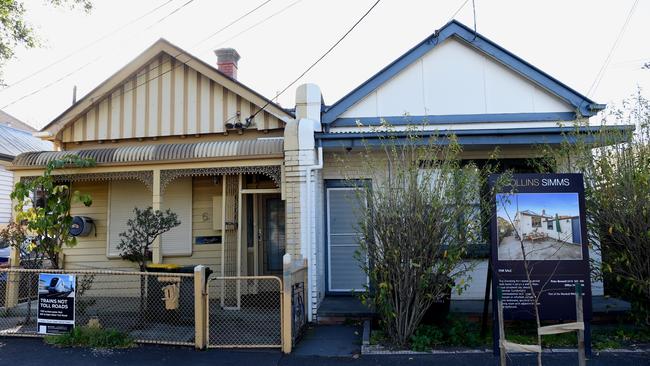
All Australians who are being impacted by lower spending power are now being forced to make very difficult spending decisions. Similar decisions are being made in the US and Europe. We are not alone.
This downturn is different to any we have experienced in recent decades. Conventional downturns are characterised by rising unemployment and deep fears among employees that “I will be next to lose my job”.
Normally there is a very severe collapse in house prices, but this time around, although they have fallen, the shortage of dwellings has so far insulated the community from much bigger blows.
The 2023 downturn takes place while there is full employment, but real wages after adjusting for inflation have fallen by about four per cent over the last year and almost seven per cent from their peak.
And the standard-of-living fall for those with big mortgages has been severe and is set to get a lot worse as the impact of higher interest rates makes it harder and harder for people to make ends meet.
Australians in all walks of life, but particularly in lower income areas, have spent most of their savings maintaining their lifestyle and are now deciding which areas of expenditure they must cut.
In the last few weeks, some banks have experienced a noticeable increase in those asking for mortgage help.
On the other side, those mortgaged families that have good balance sheets and are worthwhile long-term customers for banks are making the big banks pay for the short-term cost gains they achieved by losing control of their customers to mortgage brokers.
The customer loyalty is to the broker, not the bank, and brokers are now shopping around the banks to gain better deals for good borrowers.
That leaves the banks with mortgagees who are struggling to meet their payments.

Home mortgages have been the great driver of bank profits, but they carried margins that were too high and are now the good performing mortgages are being relegated to a commodity product.
The banks must develop skills to sell mortgage customers a wider range of services.
Fascinatingly, it was fear of this situation developing that led the banks to invest in life offerings, but they did not have the skills to operate them and encountered huge losses on exiting.
The mortgage bonanza papered over this basic bank weakness, at least until now.
In the next few weeks, we will discover whether the Fair Work Commission decides to recover some of the real wages lost by lifting official wage levels sharply.
But if they take that action, the lower inflationary trends that are now emerging will be reversed and interest rates will have to rise even further.
This is a downturn in living standards that has been engineered by the Reserve Bank to force companies to become more efficient and not increase their prices.
Out there in business, land inflation acts like a tax on a vast number of medium and smaller enterprises. The cost of the stock and materials keeps rising, and they have difficulty in recovering those costs via price rises and/or greater efficiency.
But there is an even more serious aspect to this downturn, which I have been documenting in recent days.
Bank regulator APRA has been concerned at the exposure of Australian banks to risks in the construction sector directly in loans to builders and subcontractors and indirectly through mortgage commitments to homeowners who risk having half-finished houses because of builder collapses.
One of the top four banks has virtually stopped lending in the industry, clearly because APRA believes they are too exposed. I have not been told the identity of that bank.
And then there is a second and larger bank that is examining the balance sheets of builders in minute detail before making commitments.
I suspect other banks will have to join them.
We have a credit squeeze taking place on the industry that is our largest employer and covers a wide area of small and medium businesses.
Always remember that there is a significant part of the community whose spending power has not been impacted, and their living standards and spending patterns remain unaltered.
But there is another segment of the community, particularly among young people, who are embracing a lifestyle that involves very little work.
The big Covid-19 handouts established a lifestyle that is now being adapted to current conditions by living at home or in groups.
Mental health becomes a factor both among those living this lifestyle and their parents.
It’s not public yet, but many in government are beginning to consider a combination of the old national service schemes whereby young people serve part-time in the military or are used to bolster the ranks of service organisations covering disasters.
Those ideas may fizzle out, but readers need to be aware of the gathering momentum.






After a year of economists forecasting a looming significant slowdown, it’s now happening, and it will gather momentum in coming months.